The short answer is no.
No, you absolutely do not need to move out at any time during the inspection, installation, or lifting phase of your home foundation repair project.
The truth is you don’t need to move out for a Push Pier or Helical stabilization/lift.
You don’t need to move out for Concrete R&R.
And you don’t need to move out for the installation of Helical Tiebacks.
In addition, if a contractor tells you that you should move out for any of these installations as they start backing in a U-Haul, you should be concerned.
We could end the blog post right there, but here at Dalinghaus Construction, we don’t believe in just answering questions…we do our best to speak to the concerns and/or fears behind the question.
So, here is our short and sweet article addressing common fears.
People generally want to know if they need to move out based on three primary concerns:
- Is the installation process safe?
- Will I get in the way?
- Will you (with your jackhammers, hydraulic heads, and loud noises) annoy me?
The answers are yes, only if you try, and don’t most people like loud noises? Of course, let’s dive in with some detail.
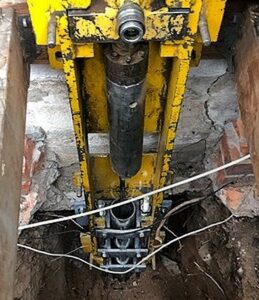
Is The Installation Process Safe?
This initial question is written directly into our DNA through years of evolutionary survival and dependence on the fight or flight cognitive mechanism.
For example, when our ancestors lumbered about the dusty savanna and were chased by saber-toothed tigers (arguably the dumbest animal of all), they either had to shimmy up a tree or fight with a stone or stick or an equally boneheaded weapon.
The idea was to survive, procreate, and produce so your children could survive, procreate, and produce.
Now, fast-forward to 2021 with Tik Tok and double-masks and a world running out of toilet paper.
The heart of the human condition has stayed the same – survive.
So, after your inspection, you sign our proposal and a subconscious, primal part of your brain starts thinking –
Yo, these guys are gonna dig underneath my foundation’s footing, drive pipe (Push or Helical Piers) who knows how deep into the earth, attach remedial brackets to the foundation using heavy-duty drills like Dexter uses, and then bury all this metal underneath my house.
What if they hit a gas line and my house goes BOOM? – Not gonna happen.
What if my house falls off of my foundation or caves in on me in the middle of the night? – Your house would literally have to break so many laws of physics…
What if, what if, what if – most of what we worry about in life is never going to happen.
Here at Dalinghaus Construction, we are dedicated to your survival and your thrival. Okay, not really a word, but you get the idea.
This is just a long way of reassuring you that foundation repair is safe.
The top two reasons we are safe are:
- We adhere to all OSHA Guidelines
- All of our crew members undergo extensive safety training
In short, we don’t play with dangerous pesticides or chemicals. We never compromise the structural integrity of your home.
And, no, your home will not fall over or crumble on top of you in the middle of the night. We get this one a lot…
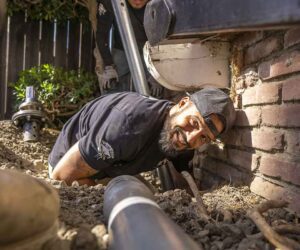
Will I Get in the Way?
Unless you’re jumping in our excavations, playing jump rope with our electrical cords, or trying to juggle jackhammers – you’re not going to get in the way.
Typically, the only times we ever have to come inside are for the initial inspection and post-inspection.
All of our other time is spent outside, in the great outdoors.
Note – occasionally we’ll need to come into your home if there is footing attached to a load-bearing wall that we need to get to.
You can read about this issue in more depth in 3 Common Problems with Foundation Repair Section 2. It is a rare occurrence and minimally invasive.
So, no, most likely, you are not in the way. And, if you are, we’ll give you a heads up for your safety.
Read more: How Long Does The Process Take From Foundation Inspection To Completion?
Will you (with your jackhammers, hydraulic heads, and loud noises) annoy me?
Most of our clients are at work during the noisy part of the installation process.
Heavy equipment is necessary to achieve your foundation repair.
A typical foundation repair project involves jackhammers, generators, and hydraulic motors (nothing above 100 decibels), as mentioned in our 25 Questions to Ask When Hiring a Foundation Repair Contractor.
Nothing a pair of headphones or earplugs wouldn’t help alleviate.
Let’s Lift This Thing
And there you have it – the foundation repair process is safe, localized, and only a temporary inconvenience.
The lifting process is quite a magical and unique one, especially if you have kids.
Learn more: 6 Things To Keep In Mind When Hiring A Contractor
If you lie in sunny SoCal or around Maricopa County Arizona, then click the link below to book a FREE foundation inspection –



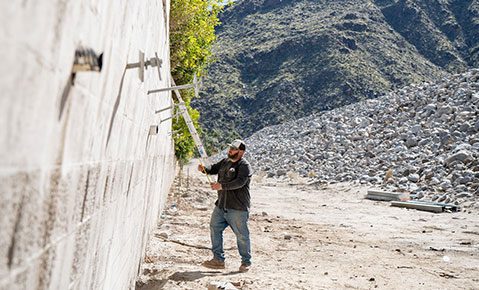
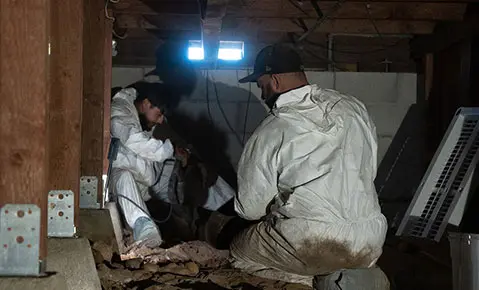
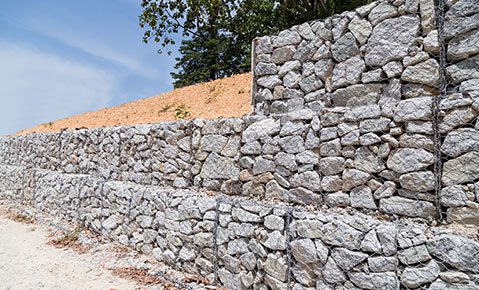
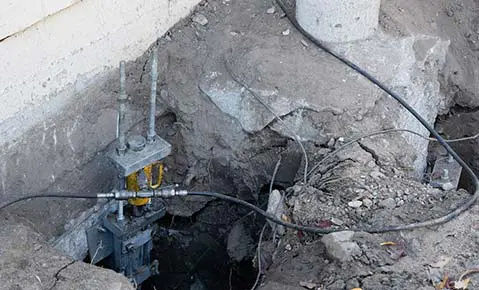
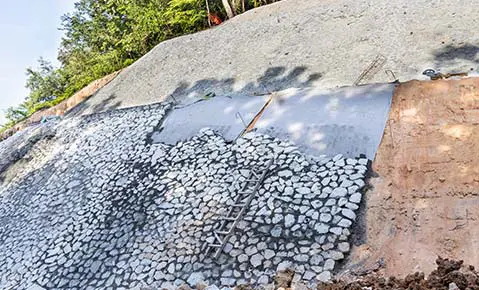
One Response
I liked how this post shared that foundation repair may require you to move out. My friend told me that their foundation needs repair. I should advise her to hire a contractor that is licensed and insured.